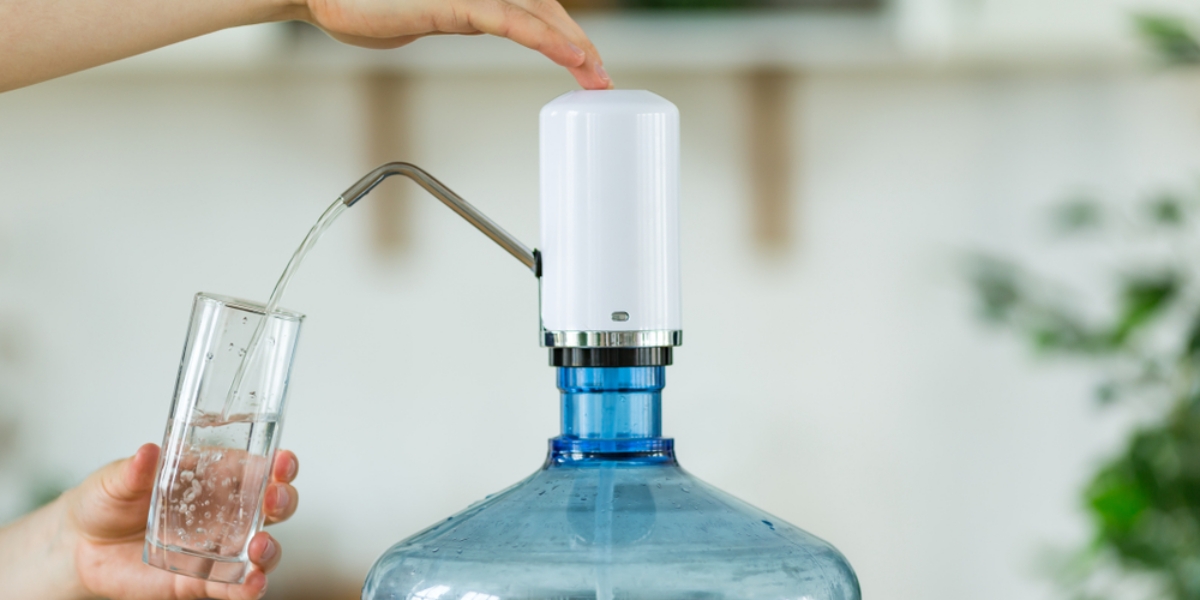The Rise of Fraud Schemes Using Fake DANA Kaget Links, Make Sure You Know These 3 Important Steps!
Through the #AwasJebakanBadman campaign, DANA wants to help you avoid falling victim to these irresponsible individuals.

Kapanlagi.com - Information about BPA contamination in reusable gallons has recently been widely heard. So, what is the truth? Apparently, according to the Acting Deputy for Supervision of Processed Food at the Food and Drug Supervisory Agency (BPOM), Ema Setyawati, the majority of the bottled drinking water packaging used by the public is indeed prone to contamination by the chemical compound Bisphenol A or BPA.
Ema also explained the background of the new regulation on BPA hazard labeling on branded drinking water gallons. "The regulation is aimed at protecting the community," said Ema in an interview aired on the site Validnews.ID (2/8). To protect the community, BPOM has also taken several actions. What are they?
On April 5, 2024, BPOM approved the addition of two new articles to the regulation on Processed Food Labels, namely the obligation to include a label on the storage method for packaged drinking water (Article 48a) and the obligation to include a warning label about BPA risks on all branded drinking water gallons that use polycarbonate packaging (Article 61A).
In the future, when the grace period for the implementation of these regulations ends in 2028, producers using polycarbonate packaging, the most common type of hard plastic gallon on the market, will be required to apply the warning: "Under certain conditions, polycarbonate packaging may release BPA into packaged drinking water".
In response to questions from Validnews, Ema mentioned several diseases correlated with BPA contamination in the body, including reproductive system disorders in both men and women, diabetes and obesity, cardiovascular disorders, kidney disorders, cancer, mental health development disorders, and Autism Spectrum Disorder (ASD) in children.
According to her, polycarbonate gallon containers are generally distributed through a 'reuse' system, where producers routinely collect empty gallons to be cleaned at the factory before being refilled and marketed again. BPA contamination in reusable gallons, as it is popularly called, has the potential to occur if the washing and distribution process of the gallons is "not proper".
For example, when producers spray used gallons with high temperatures, use detergents, or scrub the inside of the gallon until it is scratched, and allow the gallon to be exposed to direct sunlight for a long time during delivery to consumers. "The repeated use of such gallon packaging can potentially lead to the migration/release of BPA," she said.
Therefore, Ema urged the industry to conduct "periodic self-monitoring" regarding food safety and packaging requirements and to consistently implement good manufacturing practices (GMP), including monitoring process control, raw materials, and packaging.
Comprehensive research by BPOM from 2021-2022 found that BPA leaching from polycarbonate plastic bottled drinking water "shows a concerning trend", with five provinces recorded having BPA migration levels exceeding the safe threshold.
According to Ema, food safety and quality authorities in various countries have tightened the safe exposure limits for BPA. She cited that the European Food Safety Authority in April 2023 set the Tolerable Daily Intake (TDI) for BPA to be 20,000 times lower, at 0.002 micrograms/kilogram body weight/day from the previous 4 micrograms/kilogram body weight/day.
"This indicates an increasing risk level of BPA hazards," she said. Furthermore, Ema mentioned that the BPA labeling policy is motivated by the government's desire to protect public health.
Consumed by all age groups, the annual production volume of gallon water is recorded at 21 billion liters with a total of 50.2 million consumers, or 18% of Indonesia's population in 2020. According to Ema, "Based on health risks, consumption levels, and circulating product data, BPOM sees the need to promptly regulate AMDK labeling."
(*)
(kly/tmi)
Cobain For You Page (FYP) Yang kamu suka ada di sini,
lihat isinya
Through the #AwasJebakanBadman campaign, DANA wants to help you avoid falling victim to these irresponsible individuals.
Many netizens are eagerly following the Flash Sale session for the 8RB Toyota Agya car on Shopee Live hosted by Mami Louisse
Willie Salim himself looks very enthusiastic welcoming Shopee Live Willie Salim Day.
Their business actually started during the Covid-19 pandemic in 2020, when they were only 23 years old.
This award is a survey program, ranking, and granting awards to the best original Indonesian brands.
So, what are the advantages of buying Travel Insurance at D-Bank PRO?
You can also purchase auction and non-auction property assets such as shops at more competitive prices through BRI Auction Info. Here are some of the benefits!
So, what process did BPOM undertake to implement this BPA hazard label?
Exclusive boarding houses like Cove usually have several advantages over regular boarding houses to maximize the comfort of their residents.
DANA digital wallet can make you save more every month because the admin fee is free 10x/month. How is it possible? Here's the explanation!
Take note, Willie Salim's First Shopee Live will take place on Monday, July 22, 2024, starting at 20.00 WIB.
Through this game, you can create a squad by combining a series of popular characters from Supercell games, you know!